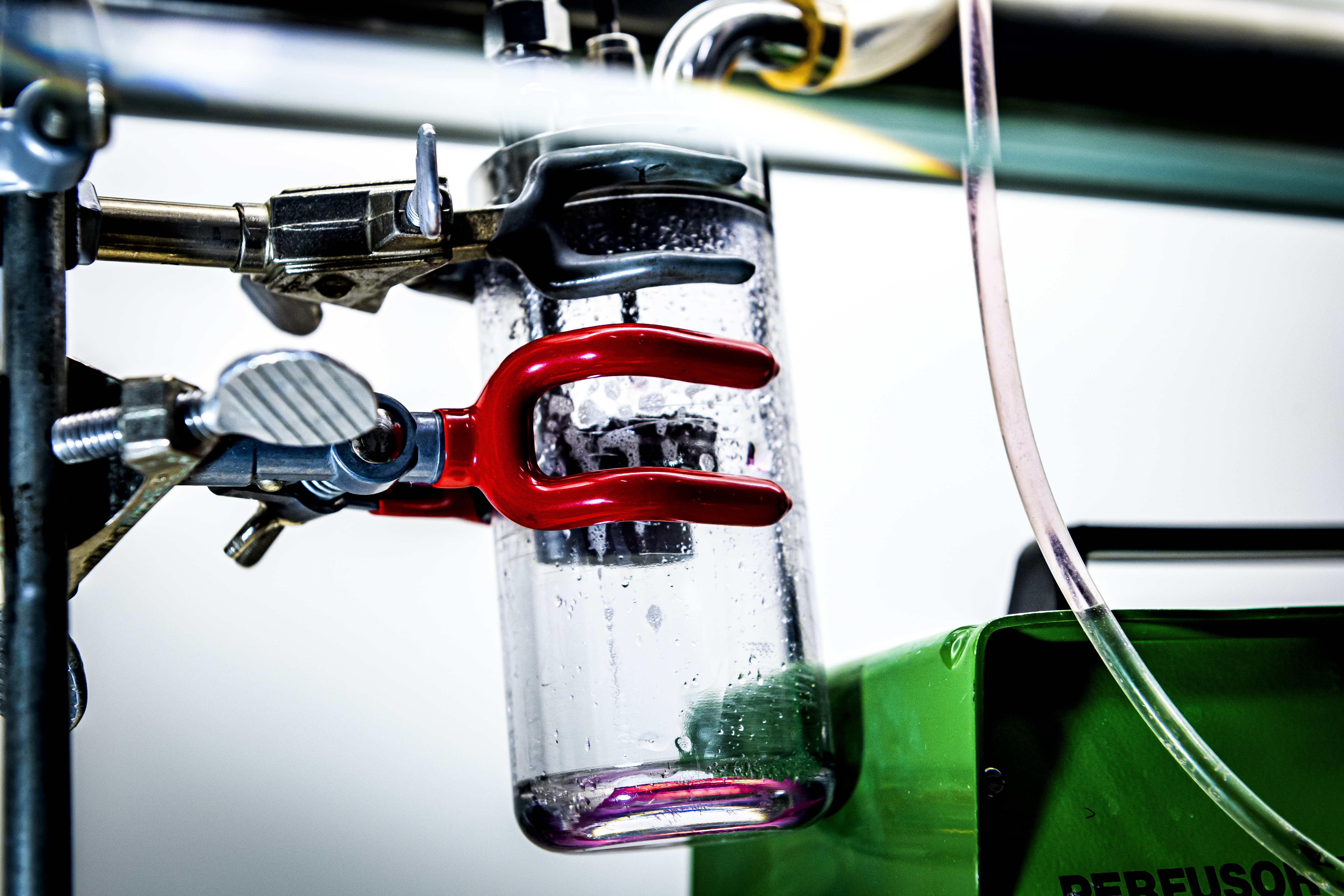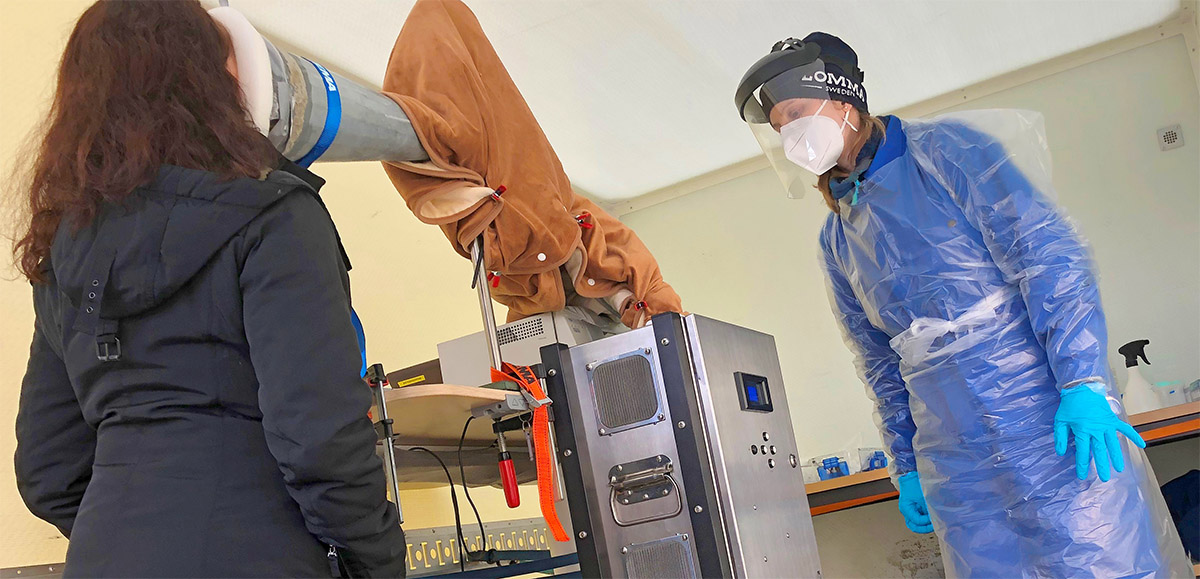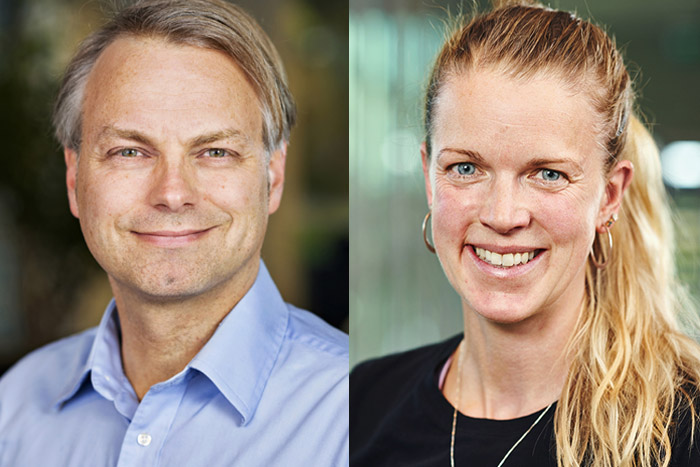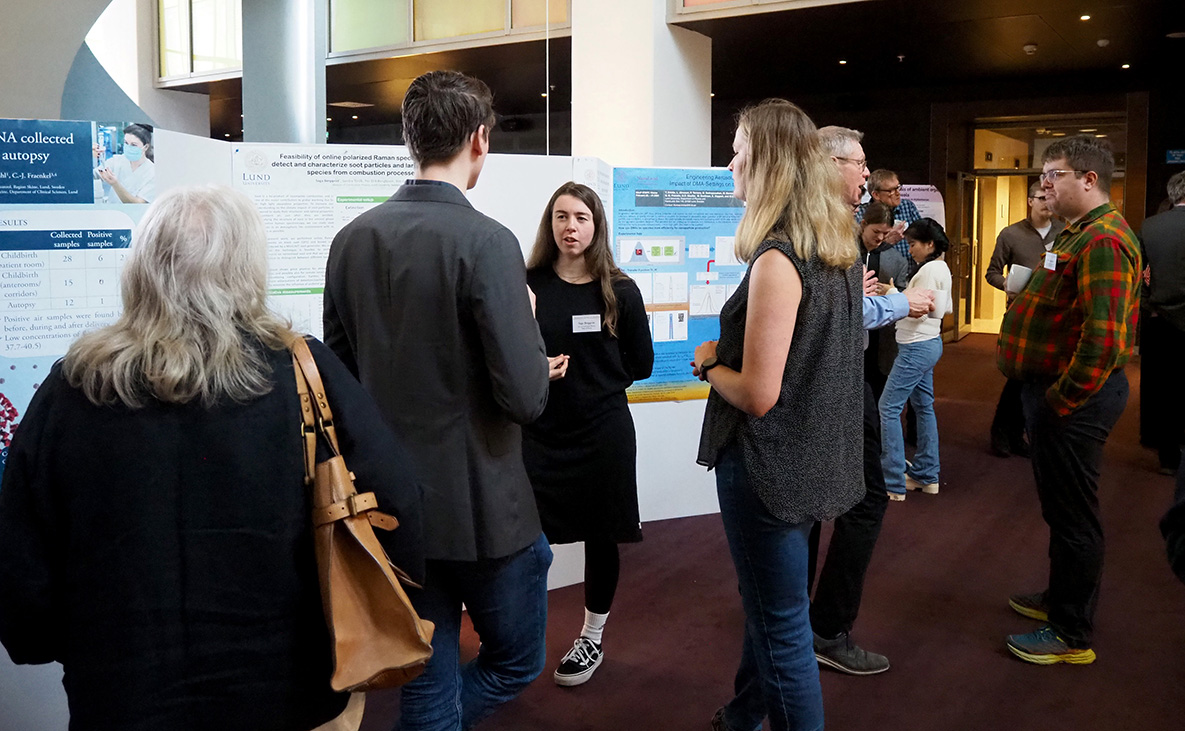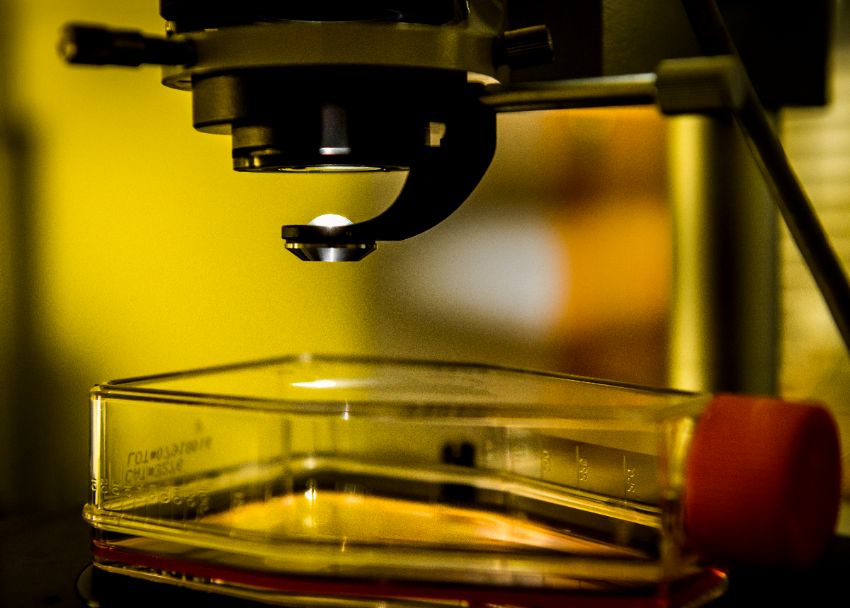
LTH Profile Area: Aerosols
Today, humanity faces large societal challenges, and we are now in a transition period where a lot of technical development is ongoing. In order to work for this shift towards a sustainable society, the LTH Profile Area Aerosols has identified the following areas of impact:
- Health
- Climate
- Innovations and solutions
The research increases the understanding of the sources of particulate air pollution and its effects on the climate and human health, and provides innovations and control strategies in the following areas: Healthy indoor and outdoor environments, clean transportation and sustainable materials and cities. Research is performed in close collaboration with external actors in order to meet societal and industrial needs.
Our goals are to promote clean air, improve climate predictions and enable sustainable solutions.
Focus areas
The activities are divided into three well-connected research directions that span from basic to applied research:
- Basic studies of pollutant formation and transformation
- Emission reduction potential and impacts of emerging technologies in transportation and energy.
- Non-tailpipe particle emissions from road and rail transport (from brakes, tire-road and wheel-rail interfaces)
Coordination: Per-Erik Bengtsson, Jens Wahlström and Joakim Pagels
In this focus area, there are studies on atmospheric aerosols from various sources, from the surface all the way up to the stratosphere:
- Fundamental studies of atmospheric processing and cloud formation
- Improved quantification of the climate impacts of atmospheric aerosols
- Provision of input for improved health impact assessment of different pollution sources and their atmospheric processing
Coordination: Erik Swietlicki, Moa Sporre, Birgitta Svenningsson and Pontus Roldin
The area includes basic research where aerosols are used to create new materials, and research on human and environmental exposure during production and manufacturing, as well as consumer use, accidental fires, disposal and recycling:
- Generation of advanced materials with size and composition control via the aerosol route
- Human exposure and inhalation safety aspects of novel materials across the life cycle
- Environmental spread via aerosol emissions during recycling and secondary use of materials
Coordination: Jenny Rissler, Maria Messing and Christina Isaxon
Aerosols in indoor environments is a rapidly expanding research area both when it comes to indoor air quality and through the role of aerosols in disease transmission. This focus area has three strategic research directions:
- Basic indoor aerosol processes, with quantification of emissions from indoor sources and indoor transformation of outdoor pollutants.
- Creating healthy indoor environments, exploring the interplay between aerosol exposures and multiple environmental factors in the built environment affecting human health.
- Aerosols and disease transmission, with the vision to reduce adverse health effects from inhalation of biological aerosols.
Coordination: Aneta Wierzbicka, Birgitta Nordquist and Jakob Löndahl
Third-cycle education
Advanced Methods in Aerosol Technology (MAM050F), 7.5 credits
The course is given in modules of 1.5 credits each.
The aim of the course is to provide deeper knowledge and practical experience of measurement methods and data analysis within aerosol technology.
Course syllabus at the LTH website
Aerosol Technology (MAM242F), 7.5 credits
The aim of the course is for engineering students to acquire an understanding of the mechanisms behind the generation, transport, transformations, and deposition of airborne particles that cause pollution. It also aims to provide knowledge of sampling strategies and measuring techniques for these particles.
Course syllabus at the LTH website
Applied Nuclear, Neutron, and Reactor Physics (FKFN25F), 7,5 credits
The aim of the course is to show the possibilities to use competence in nuclear physics and nuclear measurement techniques as a tool within other disciplines. Special emphasis is put on ion beam analysis, neutron scattering, neutron detection and reactor physics.
Course syllabus at the LTH website
Applied Statistics (MAM005F), 1.5 credits
The aim is to give an introduction to a statistical thinking, statistical methodology and management of empirical data in a statistical program. After the course, participants are able to perform and interpret the results of simple statistical analyses and critically examine elementary statistics in scientific studies.
Course syllabus at the LTH website
Atmospheric Chemistry and Physics (FKFF01F), 4 or 7.5 credits
The course provides understanding of physical, chemical and meteorological processes in the atmosphere as well as environmental consequences of changes of atmospheric composition caused by human activities. The course should also provide a capability to assess and discuss environmental issues within the working life and societal debate from a natural science perspective.
Course syllabus at the LTH website
First Steps in Biosphere-Atmosphere Modelling (FKF030F), 5 credits
The course is a two week intensive summer course. It aims to provide basic education on: (1) the most important biological, chemical, and physical processes that govern the concentrations of gases and aerosol particles in the atmosphere, (2) how the biosphere interacts with the atmosphere, and (3) how to implement these processes numerically in atmospheric models.
Course syllabus at the LTH website
Human in Extreme Environments (MAMF35F), 7.5 credits
The overall aim of the course is to provide knowledge about physiology and the effects of extreme Environments on human wellbeing, physiology, health and performance, as well as related prevention and protection.
Course syllabus at the LTH website
Innovation and Value Creation in Research (INT001F), 4 credits
The aim of this course is to broaden the concept of innovation and to equip PhD students with tools and processes, ”innovation and value creation lenses” needed to be able put their research in a utilization and societal perspective.
Course syllabus at the LTH website
Introduction to PhD studies at the Department of Design Sciences, Aerosol Technology (IDE020F), 4 credits
The aim of the course is to enable doctoral students to develop a general understanding of the research process and of different ways of presenting research findings in Aerosol Technology.
Course syllabus at the LTH website
Methods for Environmental Monitoring (FKF100F), 7.5 credits
The course aims at providing an understanding of advanced environmental measurement techniques, with a focus on air quality applications, and how these techniques can be used to provide a scientifically sound basis for estimates of the impact of various human activities on the environment and human health.
Course syllabus at the LTH website
Nanosafety (MAM030F), 5 credits
The aim of the course is to mediate knowledge of safe manufacturing and handling of engineered nanoparticles and of nanomaterials i.e. materials containing nanoparticles, in the perspective of human health and of environment. Aspects such as safety, risks, particle characteristics, exposure- and emission assessment, safe-by-design, life cycle analysis, legislation, and ethical aspects will be covered.
Course syllabus at the LTH website
Particles and Health (MAM001F), 6 credits
The aim of the course is to mediate knowledge of how particles may affect human health. Particles of different origin such as atmospheric, indoor, workplace aerosols and engineered nanoparticles will be covered. The participants will learn how to assess exposures and effects of particles as well as relationships between particle properties and toxicological effects.
Course syllabus at the LTH website
Reading course in aerosol science (MAM010F), maximum 7.5 credits (usually 0.5 credits per occasion)
The aim of the course is to increase knowledge and reflection in the area of specialisation of the PhD student. The course consists of sub-blocks, each of which focuses on a research paper in the doctoral student's topic of specialization.
Course syllabus at the LTH website
Seminar course in aerosol science (MAM025F), maximum 5 credits
The aim of the course is to increase knowledge and reflection in the area of specialisation of the PhD student and to develop ability to link own research to new methodologies and society. The course consists of sub-blocks, each of which focuses on a series of seminars related to aerosol science.
Read the course syllabus at the LTH website
Sustainable Development – a Systems View (IDE055F), 5 credits
The overall aim of the course is to understand and be able to reflect on the set of problems with complex socio-ecological systems and to understand the importance of multi-disciplinary efforts and how to deal with current and future uncertainties.
Read the course syllabus at the LTH website
Working Environment and Human Factors (MAM020F), 15 credits
The aim of the course is for doctoral students to develop basic knowledge of the ways humans interact with the environment – physically, socially and organisationally. The course provides students with knowledge and understanding of selected areas of physiology and the environmental impact on human physical well-being, health and performance.
Read the course syllabus at the LTH website
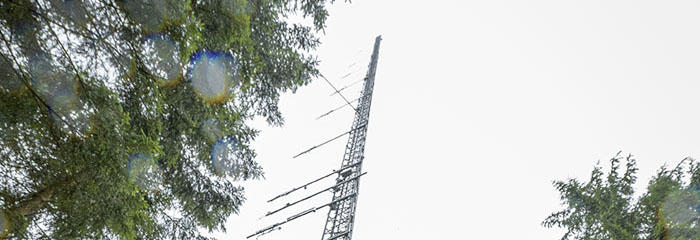
Infrastructure
The infrastructures within Aerosols involve aerosol measurement stations and aerosol laboratories. Links below will open the respective infrastructure's website.
- ACTRIS – the Aerosol, Clouds and Trace Gases Research Infrastructure
- Aerosol and Climate Laboratory
- Other infrastructures at Lund University where aerosols are studied:
- Engineered Nanoparticle Laboratory
- Max IV Finestbeams: Materials and atmospheric science beamline
- Soot Optical Diagnostic Laboratory
Aerosols master degree projects
Interested in doing your master degree project within Aerosols? We can offer research- and industry-driven projects with applications towards clean air, technology, drug delivery and climate.
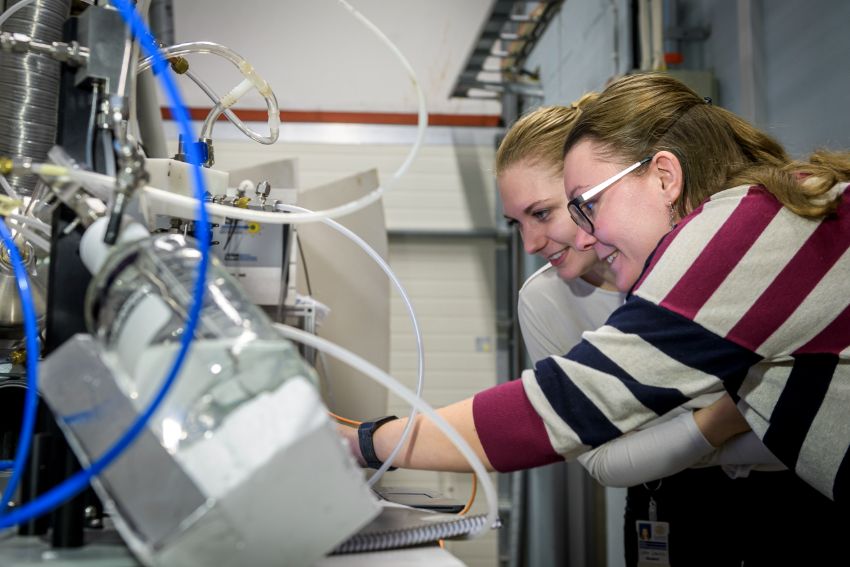
People
The researchers within Aerosols in Lund University's Research Portal
Participating departments:
- Building and Environmental Technology
- Centre for Mathematical Sciences
- Chemical Engineering
- Chemistry
- Design Sciences
- Energy Sciences
- Food Technology, Engineering and Nutrition
- Mechanical Engineering Sciences
- Physics
- Technology and Society
Departments from the faculties of Medicine and Science also participate.
Today, humanity faces large societal challenges, and we are now in a transition period where a lot of technical development is ongoing. In order to work for this shift towards a sustainable society, the LTH Profile Area Aerosols has identified the following areas of impact:
- Health
- Climate
- Innovations and solutions
The research increases the understanding of the sources of particulate air pollution and its effects on the climate and human health, and provides innovations and control strategies in the following areas: Healthy indoor and outdoor environments, clean transportation and sustainable materials and cities. Research is performed in close collaboration with external actors in order to meet societal and industrial needs.
Our goals are to promote clean air, improve climate predictions and enable sustainable solutions.
Focus areas
The activities are divided into three well-connected research directions that span from basic to applied research:
- Basic studies of pollutant formation and transformation
- Emission reduction potential and impacts of emerging technologies in transportation and energy.
- Non-tailpipe particle emissions from road and rail transport (from brakes, tire-road and wheel-rail interfaces)
Coordination: Per-Erik Bengtsson, Jens Wahlström and Joakim Pagels
In this focus area, there are studies on atmospheric aerosols from various sources, from the surface all the way up to the stratosphere:
- Fundamental studies of atmospheric processing and cloud formation
- Improved quantification of the climate impacts of atmospheric aerosols
- Provision of input for improved health impact assessment of different pollution sources and their atmospheric processing
Coordination: Erik Swietlicki, Moa Sporre, Birgitta Svenningsson and Pontus Roldin
The area includes basic research where aerosols are used to create new materials, and research on human and environmental exposure during production and manufacturing, as well as consumer use, accidental fires, disposal and recycling:
- Generation of advanced materials with size and composition control via the aerosol route
- Human exposure and inhalation safety aspects of novel materials across the life cycle
- Environmental spread via aerosol emissions during recycling and secondary use of materials
Coordination: Jenny Rissler, Maria Messing and Christina Isaxon
Aerosols in indoor environments is a rapidly expanding research area both when it comes to indoor air quality and through the role of aerosols in disease transmission. This focus area has three strategic research directions:
- Basic indoor aerosol processes, with quantification of emissions from indoor sources and indoor transformation of outdoor pollutants.
- Creating healthy indoor environments, exploring the interplay between aerosol exposures and multiple environmental factors in the built environment affecting human health.
- Aerosols and disease transmission, with the vision to reduce adverse health effects from inhalation of biological aerosols.
Coordination: Aneta Wierzbicka, Birgitta Nordquist and Jakob Löndahl
Infrastructure
The infrastructures within Aerosols involve aerosol measurement stations and aerosol laboratories. Links below will open the respective infrastructure's website.
- ACTRIS – the Aerosol, Clouds and Trace Gases Research Infrastructure
- Aerosol and Climate Laboratory
- Other infrastructures at Lund University where aerosols are studied:
- Engineered Nanoparticle Laboratory
- Max IV Finestbeams: Materials and atmospheric science beamline
- Soot Optical Diagnostic Laboratory

People
The researchers within Aerosols in Lund University's Research Portal
Participating departments:
- Building and Environmental Technology
- Centre for Mathematical Sciences
- Chemical Engineering
- Chemistry
- Design Sciences
- Energy Sciences
- Food Technology, Engineering and Nutrition
- Mechanical Engineering Sciences
- Physics
- Technology and Society
Departments from the faculties of Medicine and Science also participate.

